Categories of the European Web Portal
The contributions (essays and primary sources) of the web portal are thematically structured as follows:
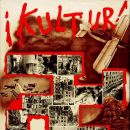
The European "Age of Extremes" (E. Hobsbawm) was marked by the breakthrough of democratic orders on the one hand and by the depredations of dictatorships on the other. In the course of industrialization, political movements emerged that challenged the old and established powers of nobility and monarchies. These movements seemingly emerged victorious from the social crises of the First World War, as revolutions, starting in Russia, occurred in many states. However, the Bolsheviks gained the upper hand in the Russian Revolution and brought the Soviet Union and—after the Second World War—large parts of Eastern Europe under their dictatorial rule, imposing their order on these countries. Democracy was either subverted or unable to take root in other European societies as well: in Italy and Germany, fascist and National Socialist dictatorships were established. Racism, political disenfranchisement, persecution, and finally the Nazi war of extermination were the results. While democratic systems of governance were successfully established in (Western) Europe after 1945 under US influence, authoritarian regimes remained in place in the south of the continent until the 1970s, and in the socialist states in Eastern/Eastern Central Europe even longer. However, the borders between dictatorships and democracies were not hermetically sealed: economic connections, cultural and sports exchanges, political contacts, and other opportunities to perceive each other repeatedly tore holes in the "Iron Curtain".
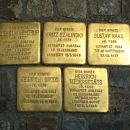
According to Herrmann Heimpel, Europe’s historical nations are what make the region European, and accordingly the cultures of memory of the half-continent are primarily national in character. What these national cultures of remembrance have in common is the tension between family and private memory on the one hand and the historical-political principles and initiatives of state and civil society actors on the other. Moreover, the memory of Soviet communism has a cross-national impact in East-Central Europe, as does that of National Socialist occupation in Western and Northern Europe. By contrast, the colonial heritage (including the memory of colonial crimes) common to many European nation states seem to have no transnationally binding force. Here, the commemoration of the Ottoman-Turkish genocide of the Armenians acts as a surrogate throughout Europe. Brussels' initiatives aimed at an EU-wide culture of remembrance, such as the European Day of Remembrance for the Victims of National Socialism and Stalinism, have had little effect, in marked contrast to the International Day of Remembrance for the Victims of the Holocaust initiated by the United Nations.
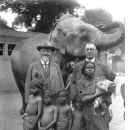
The contributions in this section shed light on the diverse relationships that Europeans (understood as people living in Europe, with manifold and diverse origins) have maintained with actors in other parts of the world. The ostensibly ‘foreign’ world is the result of constructing a binary opposition between the European and the non-European. This includes the question of the effects and projections emanating from Europe, but the focus is on the contribution that non-Europeans have made to European history and how this contribution came about. This brings interactions, cultural transfers and circulation into focus, allowing a long tradition of conceptual Eurocentrism to be critiqued. Instead of conceptualizing history in the form of circles, where the inner circle is understood to be Europeanization and the outer circle is described as globalization (i.e., as an imposition brought in from the outside), it is important for us to make the long history of a close intertwining of these two processes visible and comprehensible through the source material we use and contextualize.
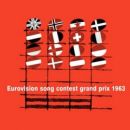
Contributions in this section analyze processes of socialization in Europe on the basis of exemplary dimensions and conflicts and at different levels of society (i.e., at the local, regional, national and cross-border European levels). Essays focus on the institutionalization and organisation of social relations in state-based societies and cross-border networks. Specifically, the section looks at the history of social positions, roles, situations, hierarchies and inequalities in work and leisure; the history of social movements, classes and socio-cultural milieus; and the history of sociability and associations, interest groups and the welfare state. (For further social dimensions, see, among others, the sections on the Institutionalization of Europe, Spatializations, Images of Self and Other, Body and Gender, and Economy and Environment).
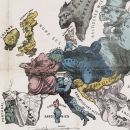
The contributions in this section deal with the history of high, popular and mass cultures in Europe. The focus is on their role and significance 1) in strategies of traditionalization and modernization, 2) in the tensions between social groups, classes and socio-cultural milieus and 3) in the processes of nationalization, regionalization, Europeanisation and globalization among social, political, economic and cultural relations. The spectrum of topics and approaches ranges from the history of the arts, to the history of consumer and material culture, to the history of everyday culture in industrial, urban and rural societies. The section examines cultural actors and fields, forms of expression, artefacts, practices, rituals, institutions, rules and organisations; it also explores the processes for production, mediation, dissemination, reception and use of cultural artefacts, goods and services. (For further cultural dimensions, see, among others, the sections on Images of Self and Others, Science and Education, Body and Gender, Religion, and Economy and Environment).

Against the backdrop of the two "European" world wars in the 20th century, the European integration process emerges as a long-term peace project and manifests itself in diverse cultural, political, social and economic interdependencies, above all through the establishment and development of shared institutions. Institutionalization processes are socially recognized mechanisms that ensure that different actors in recurring situations can expect procedures, responsibilities and forms of cooperation. Institutions arise from the need for regularity, social and cultural identity, relief, control of fields of action, typification, information, order, and stability, but they require acceptance and habitualization. Another essential aspect is reflexive institutionalization, which became visible in the discussions about the phenomena of de-integration (Euro crisis, Brexit) or governance in Europe. Acceptance arises, among other things, from the convergence of problem perceptions, social norms, socio-cultural patterns, and political procedures. The European integration process has always been accompanied by the work of national and European interest groups and parties. The contributions in this section deal with different facets of the history of the European institutionalization process.
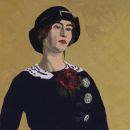
Body and gender history are understood as products of socio-cultural practices, as sites of attempts at social order, and — not least — as sites of political conflicts in European history. Gender is an important social category indispensable for the analysis of present as well as past power relations. The task of gender history is to show the historicity of masculinity, femininity and other gender concepts, and identify relevant historical contexts and changes. The comprehensive historicization of the body is a closely connected task.
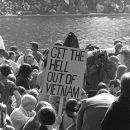
Europe's history is filled with war, most examples of which were traumatic events for the populations of the affected European regions or countries. Generations of Europeans shared the experience of violence, conquest and occupation; of flight and expulsion; of hunger and destruction; and of disease and death. Despite the destruction associated with the conflicts, the wars within Europe and those fought outside—mostly in a colonial framework—constituted important moments of cultural transfer. Menacing disputes and threatening rivalries between European states were also an important "interweaving factor" that influenced the institutionalization of the European nation states. In peace negotiations and congresses, European actors tried repeatedly, often with dubious success, to codify the European balance of power in order to avoid further wars. Ultimately, the European Union itself can be traced back to the designs and ideas of a united and permanently pacified Europe after the world wars. In this sense, the contributions in this section look at the diverse influences that wars and efforts at securing lasting peace have had on European history.
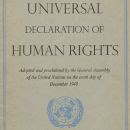
The contributions in this section deal with the history of legal forms, procedures and practices as well as justifications in Europe from the early modern period to today. They analyze the functions and effects of law in the internal and external relations of European societies, states and legal spaces. The development of law and society's dealings with it are examined on the basis of selected problems and exemplary conflicts, with the help of comparative and transfer-historical approaches on the regional, national and supranational scale. From the perspective of legal and European history, questions on the dissemination, homogenization, differentiation, reception, demarcation and mixing of legal cultures (systems and practices) are of particular interest.
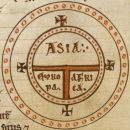
The socializing power of religion is the focus of the articles in this section. Religion shapes understandings of the world and everyday reason. It creates and cuts connections, unites and delimits. Religion therefore enters into a tense relationship with ideas of "nation", "people" or "Europe". Christianity, with its evangelical mandate, has also shaped Europe's relationship with the world in modern times and produced long-lasting images of itself and others. From the practice of religion, but also from the political and scientific approach to it, the authors observe the movements of religious actors and ideas in the European area and beyond, as well as their transformations and effects.
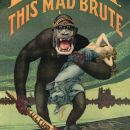
As a geographical space, an imagined order or a political-cultural construct, Europe is a fluid entity, a work in progress, and a relational category that can only be understood in its changing relations to other concepts, entities and spaces. The contributions in this section refer to this essential characteristic of all concepts of Europe by illuminating the relevance of ideas, perceptions, self-determination and attributions to others for the constitution of the identities and ideas of Europe. This involves exploring the clichés and stereotypes, affirmative and critical evaluations, internal and external demarcations, and the “views from outside,” in which Europe, whether as a space of experience and communication, as a concept of community, or as a political project, is constituted in a variety of meanings.
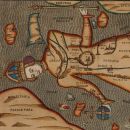
Spatialization processes shape social interactions. Borders, inclusion and exclusion emphasize the spatial dimension just as much as the formation of enclaves, special zones and regions. After a long period of special interest in territorialization and the associated state- and nation-building processes, historical scholarship is now devoting more attention to those processes that transcend individual territories. Scholarship understands these as transnational, transregional and transcultural processes, which are sometimes presented as signs of recent globalization, but which, on closer inspection, often have a long history. Europeanization, which is the focus of this portal, is itself a very powerful spatialization process, in which terms it is the subject of this section, along with the growing diversity of other such processes.

Europe has always identified itself as an economic entity. Historically, trade, migration and financial transactions have contributed significantly to Europeanization—one need only think of the rise of the medieval Hanseatic League, the European banking houses of the early modern era or the long tradition of labor migration. European integration after the Second World War also unfolded primarily in the economic sphere. At the same time, many of Europe’s current problems—environmental pollution, unemployment or national debt—can only be solved at the European level. The section "Economy and Environment" not only deals with problems of economic history in the stricter sense, but also looks at political and social consequences. This includes forms of self-description—such as Max Weber's analysis of European capitalism—as well as the specific strategies that Europe has developed to cope with economic crises.

Since the Enlightenment, the terms science and education have been associated in German tradition with a promise: breaking through traditional social structures and patterns of thought by means of rational thinking and a systematic methodical approach enables the creation of a tolerant future supported by civil rights and social progress. In the course of this progress, broad literacy emerged in large parts of Europe through the introduction of general education schools and a virtually all-encompassing scientification of the social and natural world, which was combined with far-reaching claims on interpretation and validity. This was a change accompanied by fundamental media upheavals that continue to the present day. The promise of the Enlightenment, only briefly evoked, spread yet at the same time proved to be ambivalent and conflictual. Thus, in the Enlightenment and in the French Revolution, the double-sided nature, if not the violence, of all-encompassing rationality and rationalization became sharply apparent, and went on to determine the dynamic development of states and nations and their political action. Initially, science and education often appeared to be bound to the national level and functioned, as it were, as a national project. At the same time, they also advanced to become part of an overarching, specifically European identity, developed above all in the demarcation away from "others", who were increasingly identified both within and outside Europe. Particularly in the context of colonial territorial acquisition, science and education in European history did not function as an emancipatory force; on the contrary, it was particularly in the demarcation from the supposed "others" that a genuine European certainty of superiority emerged, which also served as a claim to legitimacy of governance. The contributions in this section deal with the multifaceted European self-image that developed from science and education.
Contents of the European History Web Portal
The content and documents of the thematic portal are presented to users via different access points. Browsing through the main menus and submenus provides access to the following content:
- Essays: The contributions published here open up different approaches to European history for the reader.
- Sources: Published essays discuss one or more sources that can be researched separately.
- Publication Series: The publication series of the European Web Portal publishes selected sources and essays in thematic volumes on the history of Europe and Europeans from the 18th century to the present.
- Key Topics: Key Topics provide an introduction to current research topics and debates.